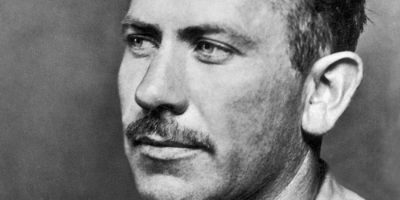10 Fascinating Facts About Gary Webb
As a wordsmith, I firmly believe that journalism is not merely a profession but a noble calling, demanding the utmost courage and unwavering honesty. In a world saturated with information, journalists serve as vigilant guardians of truth, fearlessly navigating the complexities of our times to illuminate the obscured and challenge the status quo.
Gary Webb, a luminary investigative journalist, left a lasting mark on the world through his groundbreaking work that linked the CIA to the crack cocaine epidemic in the United States. This maverick reporter’s journey unveiled not only the intricate web of covert operations he exposed but also the challenges and controversies he faced. In this comprehensive article, we delve into 10 fascinating facts about Gary Webb, providing a detailed exploration of the man behind the headlines.
1. Gary Webb was an Investigative Journalist per Excellence
Gary Webb’s journalistic commenced with writing for the student newspaper at his college in Indianapolis before joining the Kentucky Post as a reporter. A seemingly ordinary trajectory evolved into extraordinary journalism. His investigative prowess was best displayed with the publication of the Dark Alliance series in 1996 by the San Jose Mercury News.
This courageous work laid bare the alleged connections between the CIA, Nicaraguan Contras, and the surge of crack cocaine into American cities. It was a watershed moment that ignited a national conversation about the accountability of government agencies.
Unearthing this nexus between intelligence agencies and drug trafficking, Webb’s work catapulted him into the spotlight. His findings not only exposed covert operations but also raised profound questions about the US government’s role in exacerbating the crack epidemic. This journalistic feat showcased the transformative power of investigative reporting and its potential to reshape societal narratives.
2. Webb’s Revelations were met with Media Backlash
However, Webb’s revelations were met with a torrent of criticism from major news outlets. The New York Times, Washington Post, and Los Angeles Times vehemently discredited his work, igniting a media firestorm. The controversy surrounding Dark Alliance highlighted the challenges faced by journalists who dared to confront powerful institutions.
Despite the professional isolation he endured, Webb’s findings resonated with grassroots movements and communities affected by the crack epidemic. Overall, it was a nuanced situation that raised important questions about the relationships between media, power, community impact, and the personal costs of reporting dangerous truths. Up to now, there are often no easy answers, but Gary Webb’s life and work stick with us as an illustration of these dynamics.
3. Undeterred Webb Signed a Book Deal – Dark Alliance

Image by Unknown Author from Wikimedia
Undeterred by the media storm, Webb expanded his series into a book titled Dark Alliance: The CIA, the Contras, and the Cocaine Explosion, published in 1998. The book delved deeper into the intricate web of allegations surrounding the CIA’s involvement in drug trafficking. While mainstream media remained critical, Webb’s work found a dedicated readership, contributing to the ongoing discourse on government accountability. The book’s release marked a pivotal moment in Webb’s career, solidifying his position as a tenacious investigative journalist.
4. Webb’s Investigative Skills Extended beyond Dark Alliance
Gary Webb, renowned for his exposé “Dark Alliance,” showcased investigative prowess extending far beyond that infamous revelation. A seminal moment in 1980, marked by The Coal Connection, a seventeen-part series in collaboration with Cincinnati Post reporter Thomas Scheffey, affirmed Webb’s early mastery. Webb seamlessly transitioned from local exposés to national investigations, consistently peeling back layers to unveil hidden truths. Webb’s ability to dissect complex networks of intrigue reverberated through his diverse body of work, cementing his legacy as a formidable investigative journalist.
His investigative acumen was also exemplified through:
- Doctoring the Truth: Exposing problems in the State Medical Board – for Cleveland Plain Dealer
- Driving Off With Profits: Exposing Rogue and Corrupt Race Promoters in Cleveland
- Expose on Chief Justice Frank D. Celebrezze of the Ohio Supreme Court
5. A Legacy of Tragedy: A Life Unraveled
Tragically, Gary Webb’s life took a dark turn post-Dark Alliance. Struggling with financial difficulties and grappling with the aftermath of the controversy, Webb faced personal challenges that mirrored the complexities of his investigative work. In 2004, he succumbed to gunshot wounds in what was officially ruled as suicide. The circumstances surrounding his death remain a subject of debate, adding an element of mystery to Webb’s already complex narrative. His tragic end raises poignant questions about the personal toll of investigative journalism and the lengths some journalists go to bring uncomfortable truths to light.
6. Webb Triggered an Investigation against the Mighty CIA
Webb’s work, though controversial, spurred further investigations into the CIA’s activities. Declassified documents and subsequent revelations have, to some extent, substantiated Webb’s claims. This posthumous vindication has sparked debates about the role of investigative journalism in holding powerful entities accountable. The legacy of Dark Alliance continues to shape perceptions of government transparency. His determination illustrates the vindication of one journalist’s courage in the face of institutional resistance.
7. Webb won a Number of Journalism Awards
Renowned for his investigative prowess, Gary Webb clinched numerous journalism accolades throughout his illustrious career. Webb’s tireless pursuit of truth illuminated the dark corridors of power, earning him prestigious honors and underscoring the crucial role investigative journalism plays in our society.
For Mercury News coverage of the Loma Prieta earthquake together with other staff they won the 1990 Pulitzer Prize. Webb’s ability to navigate complex narratives with unyielding determination garnered him accolades, reinforcing the idea that journalism is a powerful force for accountability. Posthumous Recognition: Revisiting Webb’s Truths
While Webb faced immense scrutiny during his lifetime, posthumous investigations and revelations have rekindled interest in his work. Some journalists and researchers have revisited his findings, acknowledging the importance of his contribution to investigative journalism. The 2014 documentary Kill the Messenger further brought Webb’s story to the forefront, shedding light on the challenges he faced and the enduring relevance of his work.
8. Gary Webb’s Experience raised Important Questions about Journalistic Ethics

Image by Unknown Author from Wikimedia
His tumultuous journey unveiled a compelling narrative that probed journalistic ethics and the intricate responsibilities borne by media organizations. The relentless scrutiny he weathered highlights the formidable obstacles journalists confront when daring to question entrenched power structures.
Webb’s riveting tale doesn’t merely serve as a historical anecdote; it emerged as a stark cautionary tale, sparking dialogues surrounding the balance between fearless investigative reporting and the potential push-backs.
In the aftermath of the seismic shockwaves triggered by Dark Alliance in particular, the journalistic fraternity engaged in profound introspection. It resulted in a reevaluation of ethical considerations tethered to the perilous path of exposing government secrets.
9. Gary Webb was Betrayed by his Editors
In a disheartening turn of events, Webb found himself abandoned by his editors, even as the mounting evidence substantiated the accuracy of his stories. Amidst the grim realities of professional isolation and financial turmoil, Webb made the painful decision to resign from the San Jose Mercury News.
This tumultuous period underscores the formidable challenges journalists encounter when they dare to confront powerful institutions. The betrayal Webb experienced serves as a cautionary tale, shedding light on the precarious nature of truth-seeking in the face of influential entities.
10. Gary Webb Lived and Left in his Own Terms
In 2004, Gary Webb tragically took his own life, wielding two .38-caliber bullets to the head and leaving behind a series of poignant notes. Media outlets, quick to sensationalize, portrayed him as a discredited reporter grappling with financial woes and personal challenges.
However, for journalist Nicholas Schou, this narrative was deeply unsettling. Recognizing the need to dispel misconceptions surrounding Webb’s life and death, Schou embarked on a mission to reevaluate the circumstances. As result, Schou wrote a book titled Kill the Messenger that told the story of the tragic death of Gary Webb.
Gary Webb’s life and work exemplify the complexities of investigative journalism. The journey from a groundbreaking exposé to professional isolation and, ultimately, a tragic end, showcases the challenges faced by those who dare to question powerful institutions. His legacy persists not only through the controversies surrounding his reporting but also in the broader context of investigative journalism. His story encourages journalists to persist in the face of adversity, challenging them to uncover truths that may be uncomfortable but are essential for a transparent society. The lessons from Webb’s life extend beyond his untimely death, inspiring a new generation of truth-seekers to navigate the complex terrain of investigative reporting with resilience and unwavering commitment.
Planning a trip to Paris ? Get ready !
These are Amazon’s best-selling travel products that you may need for coming to Paris.
Bookstore
- The best travel book : Rick Steves – Paris 2023 – Learn more here
- Fodor’s Paris 2024 – Learn more here
Travel Gear
- Venture Pal Lightweight Backpack – Learn more here
- Samsonite Winfield 2 28″ Luggage – Learn more here
- Swig Savvy’s Stainless Steel Insulated Water Bottle – Learn more here
Check Amazon’s best-seller list for the most popular travel accessories. We sometimes read this list just to find out what new travel products people are buying.










